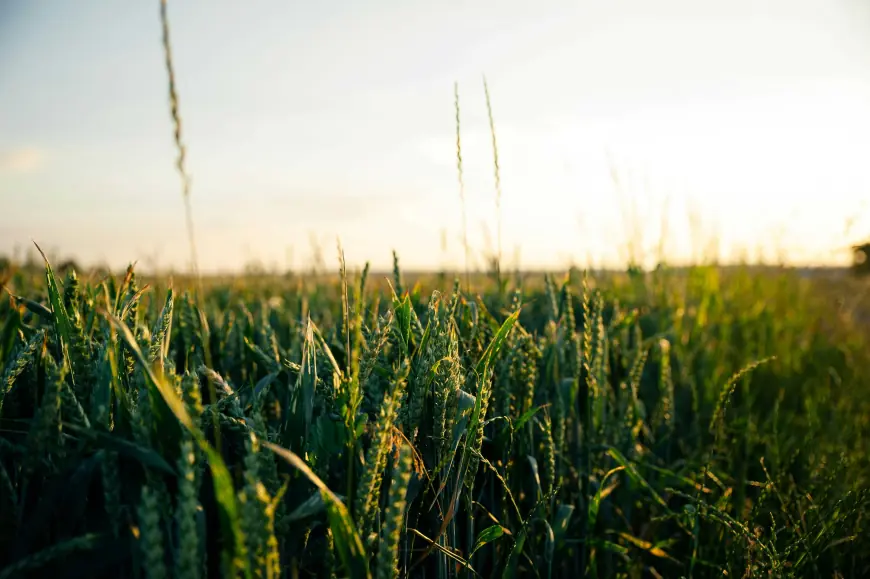Plastic vs. Biodegradable Mulch Film: Which One Is Better?
Mulching has revolutionized modern agriculture, offering farmers a reliable method of improving soil health, retaining moisture, and controlling weed growth. The use of mulch film is a common practice in farming, particularly for high-value crops. However, the debate between plastic mulch film and biodegradable mulch film continues as farmers weigh the cost, durability, and environmental impact.

Choosing the right mulching sheet for agriculture is essential for maximizing crop yields while minimizing waste and soil degradation. Understanding the advantages and limitations of both plastic and biodegradable mulch films can help farmers make informed decisions that align with their agricultural and sustainability goals.
What Is Mulch Film and Why Is It Used?
Mulch film is a protective covering used on soil surfaces to regulate temperature, suppress weeds, conserve moisture, and enhance plant growth. It is particularly beneficial in commercial farming, where optimizing soil conditions yields higher productivity and better-quality yields.
-
It helps in reducing water evaporation, leading to improved moisture retention.
-
Acts as a barrier against weeds, reducing the need for herbicides.
Farmers investing in mulching must choose between traditional plastic mulch film and newer biodegradable alternatives. Each option has its benefits and challenges.
Plastic Mulch Film: A Durable and Cost-Effective Option
Plastic mulch film has been widely used for decades due to its durability, water retention properties, and ability to increase soil temperature, accelerating plant growth.
Benefits of Plastic Mulch Film
-
Long-lasting and durable, providing multiple seasons of use.
-
It prevents soil erosion and reduces disease spread by limiting direct soil contact.
One of the most commonly used products today is Global Polyplast Mulch Film, known for its strength and reliability in agricultural applications. This mulch film enhances productivity by improving soil temperature regulation and reducing weed competition, making it an effective choice for farmers seeking cost-efficient solutions.
Limitations of Plastic Mulch Film
Despite its advantages, plastic mulch film has environmental drawbacks that have raised concerns among farmers and environmentalists.
-
Plastic waste accumulation leads to soil contamination when not disposed of properly.
-
High removal costs as used plastic mulch needs to be collected and disposed of, increasing labor expenses.
These concerns have led to the development of biodegradable mulch films, which offer a more sustainable alternative without compromising efficiency.
Biodegradable Mulch Film: A Sustainable Alternative
Biodegradable mulch film is designed to perform the same functions as traditional plastic mulch but with the added benefit of breaking down naturally into the soil.
Advantages of Biodegradable Mulch Film
-
No need for removal, as it decomposes naturally, saving on labor costs.
-
Environmentally friendly, reducing plastic waste in fields.
Research suggests that biodegradable mulch can improve soil microbial activity by 25 percent, promoting healthier soil ecosystems and enhancing long-term soil fertility.
Challenges of Using Biodegradable Mulch Film
While biodegradable mulch film offers sustainability benefits, it does have some challenges that farmers should consider.
-
Shorter lifespan, especially in high-temperature regions where decomposition may occur too quickly.
-
Higher upfront cost, though savings on disposal and labor balance it out over time.
Sustainability in agriculture is not just about increasing yields; it is about preserving the soil for future generations.
Key Differences Between Plastic and Biodegradable Mulch Film
Understanding the differences in performance, cost, and impact between these two types of mulch film is essential for selecting the best option.
Performance and Effectiveness
Plastic mulch film provides consistent durability, making it suitable for long-term applications in large-scale farming. It helps maintain uniform soil temperature and prevents excessive moisture loss.
Biodegradable mulch film, however, excels in organic farming and sustainable agriculture. It naturally integrates with soil without requiring manual removal.
Cost Considerations
Farmers looking for best-priced mulching films online often find that plastic mulch is initially more affordable. However, the added removal and disposal costs increase total expenses in the long run.
Although biodegradable mulch has a higher initial cost, this is offset by labor and waste management savings, making it a viable option for farms aiming for long-term sustainability.
Which Mulch Film Is Best for Different Crops?
The choice between plastic and biodegradable mulch depends on crop type, climate, and farming practices.
-
Plastic mulch film is commonly used for strawberries, tomatoes, and melons, where soil temperature control is crucial.
-
Biodegradable mulch film is preferred for organic vegetables, herbs, and leafy greens, where sustainability is a priority.
Making the Right Choice for Your Farm
When selecting the right mulching film for plants, farmers should consider:
-
Soil type and climate, as temperature and humidity affect mulch performance.
-
Budget constraints, balancing initial investment with long-term costs.
Investing in the right mulch sheet can increase yields, reduce labor, and improve soil health, making it a valuable addition to modern farming techniques.
Frequently Asked Questions
-
Can biodegradable mulch film fully replace plastic mulch?
Yes, but its effectiveness depends on crop type, soil conditions, and regional climate. Some farmers use a combination of both for optimal results. -
Where can I buy mulching sheets for crops?
Many agricultural suppliers and online platforms offer the best mulching film prices, catering to various farm sizes and needs. -
Does plastic mulch impact soil health?
If not properly managed, plastic mulch can lead to microplastic contamination. Using biodegradable alternatives reduces this risk. -
Is biodegradable mulch film suitable for large-scale farming?
Yes, though cost considerations should be factored in. Many large-scale farms are transitioning to biodegradable options to align with sustainability goals.
Selecting the right mulch film is a strategic decision influencing productivity and environmental impact. With ongoing advancements in biodegradable materials, the future of mulching continues to evolve, offering farmers better options for long-term agricultural success.












